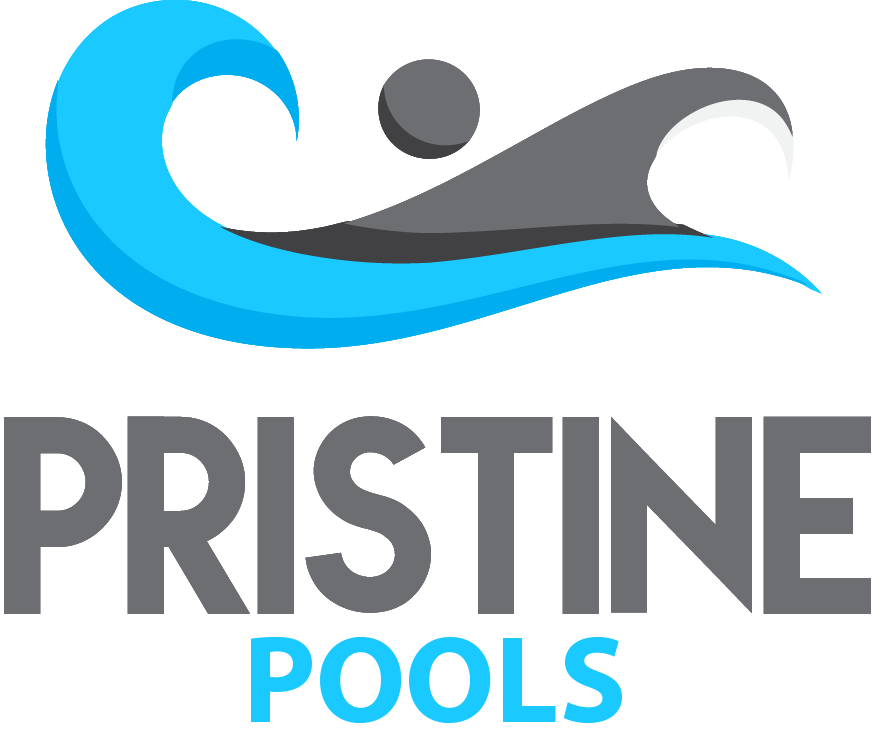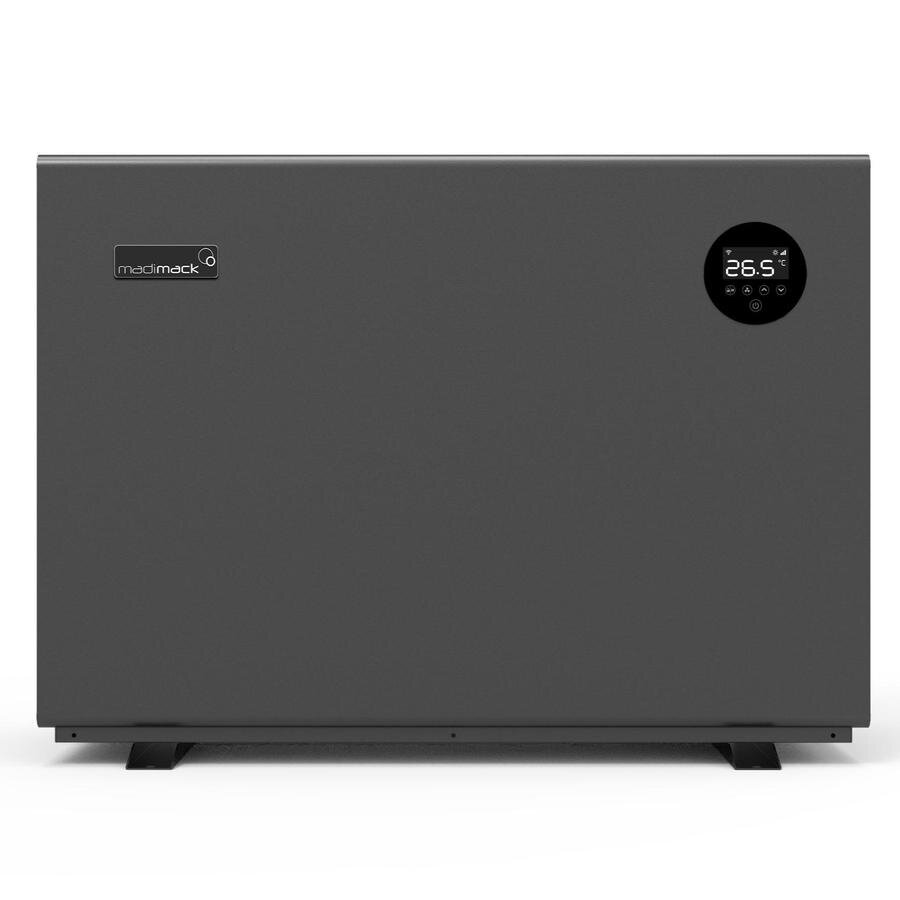Product comparison - which heat pump is best for me?
It seems like only yesterday that pool heating was a choice between solar or gas. Well now the new kid on the block (or not so new), Heat Pumps, have taken the market by storm. Within a few years they have become the most popular way for people to heat their pools. What makes them good? Why have they taken off only recently? And what heat pump is best for me? These are the questions I cover in the below article.
The revolution has coincided with solar PV (electric solar panels). Solar panels on your roof, off set the cost of running a heat pump as they run during the day when the weather is good.
This means that the product that would have been expensive to run, is no longer a costly option.
The technology in heat pumps has also improved. The running costs - while being offset by solar panels - are less than before.
Almost all heat pumps on the market are inverters. This means they can run at a fraction of the cost to maintain water temperatures. It's only when heating the pool from scratch that they chew through more energy.
The other thing with heat pumps is they come in different sizes, styles and models. So there will be one that works for you.
You can have one that will have you swimming all year round, or one that will take the edge off in Summer. They allow you to customise your swimming season to your needs.
What heat pump is best for me is a tough question. Most companies these days produce a fantastic product. They vary slightly and have a small point of difference that will appeal to some and not to others. Heat pumps are not cheap, so make sure you do your research and pick one you’re happy with.
What should you look for when making your decision?
Budget and swimming season
The first thing you need to do is work out what you want.
How long do you want to swim, at what temperature, and what’s your budget? Most people manage to match their expectations with their budget. But sometimes expectations are unrealistic to your budget, and a heat pump is not for you. A common expectation is mid Spring to mid Autumn at 25 to 28 degrees.
Coefficient of Performance (COP)
The COP is a measure of how efficient the heat pump is when running. The higher the number, the more efficient it is, and the less it costs you. When analysing this make sure you look at the COP at different temperatures. For example, some might be great in warmer weather, but cost a lot in a cooler climate. Others might be great to get you up to temp - but cost more to keep at temp than others.
Price
The price of heat pumps varies a lot. Eco models have shorter warranties and are cheaper. Premium models have longer warranties and cost more. Generally, cheaper heat pumps cost more to run, but less to buy.
Brands also plays a lot in price. Newer companies need a share of the market, so they price competitively. But they don’t have the reputation of the more established companies. Pick carefully and do your research as you will most likely get what you pay for.
Location
Heat pumps these days are quiet, but you can still hear them. Under bedroom windows if you sleep in or go to bed early, might be annoying. They need to be in a well-ventilated area as they suck in the air and blow out cold air. Without proper ventilation, this will continue getting colder until the unit becomes ineffective.
Style, Size and Appearance
As the market grows all the brands have come out with many great designs. There are large or front intakes, side discharges, and compact units. These are not purely for aesthetics, some hold practical purposes. Finally, appearance does play an important role for a lot of people. If it’s behind a wall, and hidden away - this won’t likely matter to you. But if you have to look at it whenever you are home, then you want something you like the look of.
| EvoHeat Force i19 | Madimack Elite V3 220 | AES TDI 20 | Guardian Platinum 20 | |
|---|---|---|---|---|
| Price guide | From $8700 | From $8900 | From $6900 | From $8200 |
| COP @ 27 Deg. | 16.16-6.19 | 16.4-7.1 | 14.35-6.23 | 16.4-7.5 |
| COP @ 15 Deg. | 3.84-15.40 | 8.2-5.1 | 8.17-5.08 | 7.9-5.3 |
| Weight | 90kg | 91kg | 62kg | 136kg |
| Dimensions | 1161x490x862 | 980x504x756 | 640x640x800 | 1330x548x930 |
| WiFi | Yes | Yes | Yes | Yes |
| Intake | Back | Back | 270 Degrees | Back |
| Discharge | Front | Sides | Top | Sides |
| Design | Rectangular | Rectangular | Cyclindrical | Rectangular |
| Casing/Finish | White | Matte Black | Matte Black | Matte Black |
EvoHeat
EvoHeat - Heat Pump | Pool Heating | Commercial and Domestic Heat Pump | EvoHeat
EvoHeat have been around forever. They are a well known and well trusted brand with a number of great options available to customers. Their reputation for a quality product backed by their after sales service is probably their biggest selling weapon.
Whilst they have a number ranges, their Force I range is their flagship, it’s a genuine full inverter, not stepped like many, and comes with all the bells and whistles. These are incredible all rounders that have a great COP at low and high air temperatures.
Due to EvoHeat’s reputation, these are not the cheapest unit on the market, but a point of difference is they are white in appearance.
Madimack
Madimack - Swimming Pool Heat Pump | Sustainable Energy Solutions | Madimack
Probably the best marketed heat pump in Australia is the Madimack Elite V3 range. These use a centrifugal chamber instead of a fan which allows the unit to boast the highest COP in the market in warm weather, and largest single phase heat pump on the market coming in at 32kw. These are sleek, and their warranty is enormous.
Whilst all this sounds amazing it is important to note that these units do not perform as well as other brands with the air temp at 15 degrees, or in other words they’re great for maintaining a temp, but not getting it up there.
The long warranty is great, but make sure you read the fine print as you are required to sign up within 30 days.
Australian Energy Systems (AES)
AES - Keep Turning Up The Heat - Pool Heating
These guys have outdone themselves with the new TDI design. Cylindrical in design, these fancy units are also compact and light compared to the others. With 270 degrees of intake, it allows more flexibility with the install.
Also, they are significantly cheaper, but offer similar long warranties, so these are certainly worth a look. AES has been around for a long time, but it’s only recently they’re moved into the market nationally, so they know their stuff.
These are a top discharge unit, so they’re not for everyone or every situation, but providing you have the clearance above, they will work in tight spots.
Guardian
Guardian - Pool Heating - Pool Heat Pump - Swimming Pool Heater
Guardian are the new kids on the block. Well established in the manufacturing of heat pumps, previously they have made them for other brands, but now with some ambition and research they’ve released a number of really practical and good looking designs. Priced well below the top tier companies, they’ve come in a sleek design at a competitive price and offer some great after sales service and warranties.
Their heat pumps are very big and heavy, and they don’t have the track record or history of the other brands per se, but they have been manufacturing heat pumps for a long time.
So which heat pump is best for you?
Well that’s up to you really. Think about what’s most important to you and do your research. Here we have analysed 4 very well respected companies that produce quality products, but if none of these are to your liking, then keep looking until you feel comfortable with your decision.




